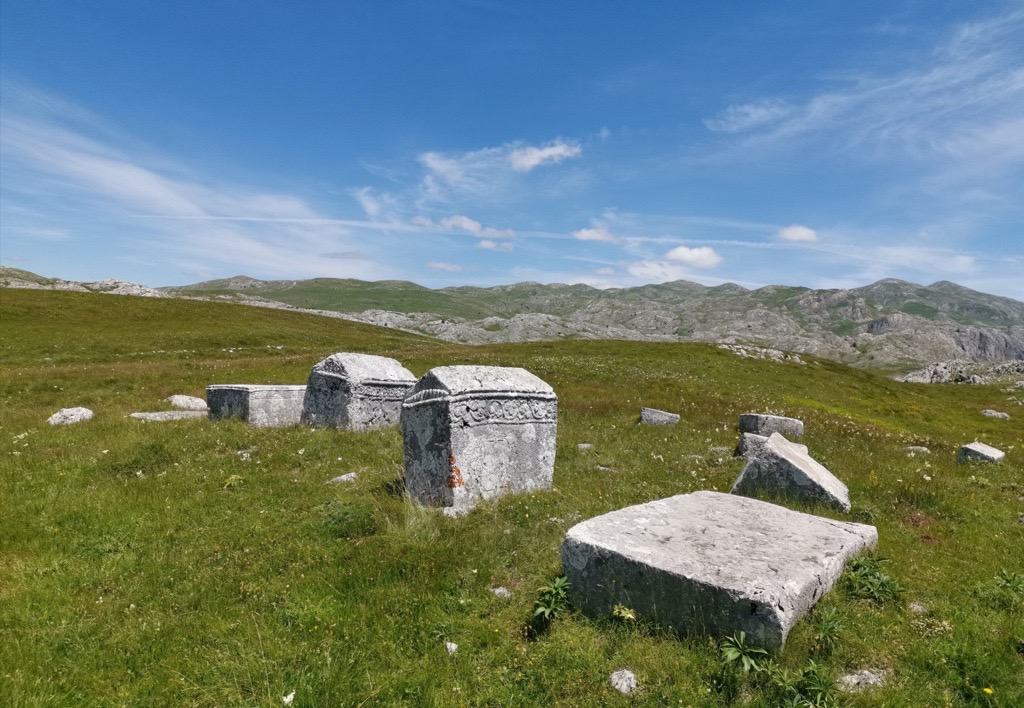Since the Neolithic age, Bosnia and Herzegovina (BiH) has been home to cultural sites that are critical to unifying the country’s different ethnicities and forging the community cohesion that is key to democratic growth. Recognizing the importance of cultural, historical and natural heritage, the International Republican Institute (IRI) is now supporting its preservation by consulting experts and planning parliamentary engagement on the issue of conservation. Through our work on the sites, IRI is demonstrating a commitment to promoting unity and reconciliation within BiH and throughout the region.
At IRI, we believe one of the primary drivers for community cohesion is a common cultural heritage, and to maintain that unity, countries must invest in the institutional preservation of their cultural landmarks. This conservation is especially important in post-conflict societies such as BiH’s, in which over 3,000 religious and many other cultural buildings were destroyed or damaged. With many scholars highlighting the importance of cultural heritage to postwar reconciliation, the 1995 Dayton Agreement both ended the armed conflict in the country and established the national Commission to Preserve National Monuments of BiH (Annex 8).
Despite the link between cultural preservation, reconciliation and democratic growth, BiH continues to lack the coordination and resources needed to ensure the continuation of its heritage. Due to limits within the 1995 Commission’s mandate, the preservation and curation of cultural sites is delegated to lower administrative levels without any clear distinction of responsibilities. Although the Parliament of Federation of BiH (PFBiH) plays a significant role in regulating a common cultural heritage, its position regarding the protection of cultural, historical, and natural heritage has been passive and inert thus far. Therefore, local communities have instead taken on the curation and maintenance of monuments. However, given the lack of resources and collision of competencies, heritage preservation has often been neglected at all levels of government.
In response, the international community has advocated for strengthening BiH’s institutional capabilities, but their efforts have thus far been to little avail. Even with recommendations from partner organizations such as UNESCO, BiH continues to struggle with protecting its heritage and has failed to make community cohesion a priority. Not only does this prevent democratic development in the country, but the lack of synergy within BiH hinders the country’s economic growth, which relies on the stimulation of industries that are connected to cultural preservation such as tourism.
To ensure BiH has the support it needs to establish cultural unity, IRI is collaborating with three members of parliament (MPs), who recognize the importance of promoting BiH’s national heritage. With the help of IRI, MPs Amer Obradovic, Nasiha Pozder and Lana Prlic transcended party lines to establish a parliamentary group, with decision-makers and citizens together leading the charge. Since its establishment, the group has already achieved notable success. In less than six months, it submitted three parliamentary inquiries, three budgetary amendments, one initiative and two joint statements to address the government’s shortcomings in preserving BiH’s heritage.
The premise is simple: recognizing BiH’s shared culture and history has the power to bring the country’s three main ethnic groups closer together. Ongoing divisions between ethnic groups is a major impediment to BiH’s democratic development, however, this multi-party parliamentary group is diligently working to transcend these barriers.
The MPs’ first objective is to better preserve the nation’s heritage by integrating it into a community development and reconciliation strategy. As BiH lawmakers continue to fight for unity in their country, IRI remains committed to supporting the multi-party group. In the future, MPs intend to consult civil society organizations, public institutions and citizens to find solutions to regulate this sector. The group members also expect MPs from other political parties to support this parliamentary engagement, unifying a range of politicians and facilitating broader cross-party cooperation.
Top